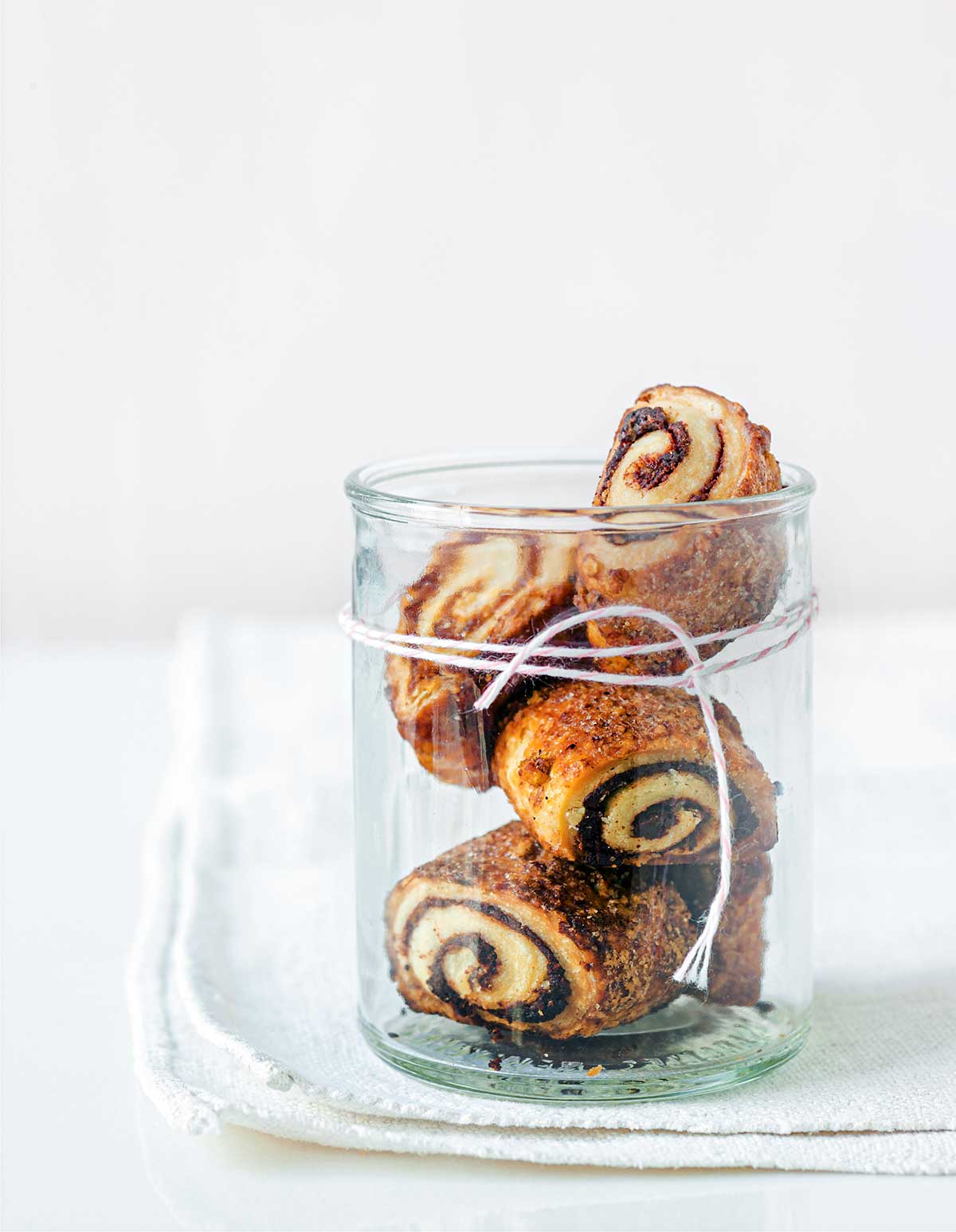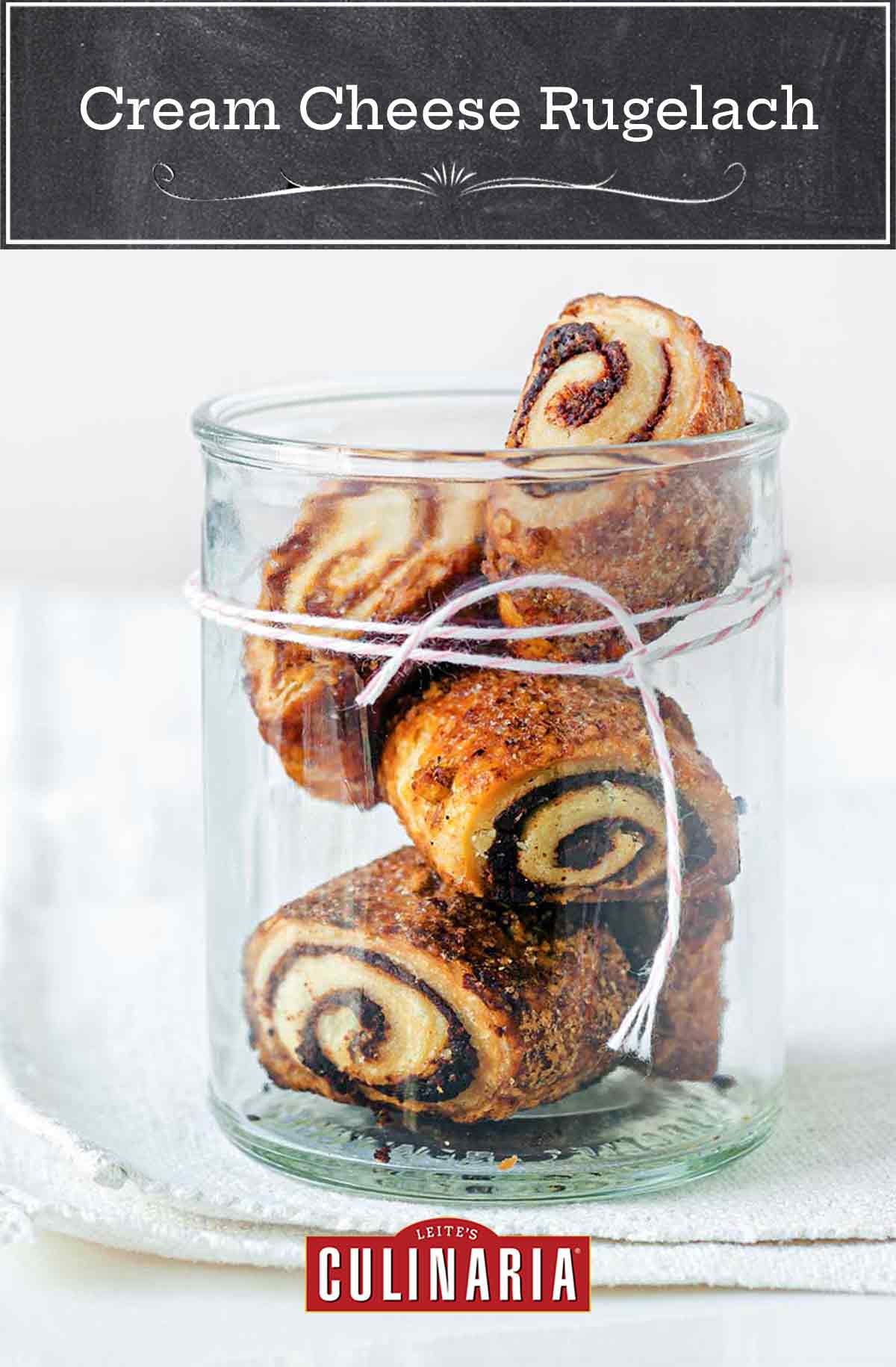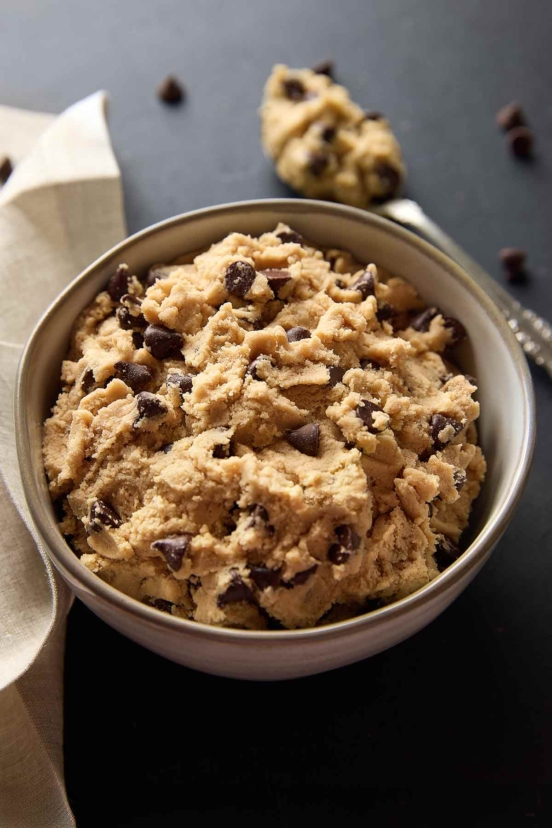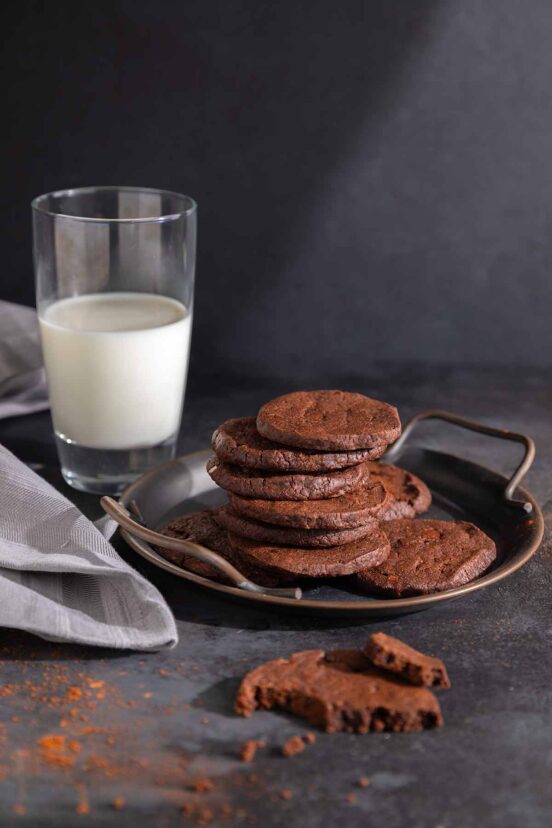
This tender, flaky cream cheese rugelach recipe came to author Tracey Zabar via chef Jason Weiner of Almond in Brooklyn who in turn acquired it from grandmother Risa Smith at a baby shower. That’s how the best recipes come to be circulated, yes? Someone experiences something transcendent, instinctively knows it’s a keeper, kindly requests the details, thankfully embraces the need for it in one’s life, openly shares the recipe with others in turn, and then bakes happily ever after. The end.–Renee Schettler Rossi
LC Not Your Grandma’s Rugelach Recipe Note
We’ve noticed that most folks’ understanding of the best rugelach recipe tends to be the rugelach recipe their grandma made. Obviously, this cream cheese rugelach recipe isn’t that rugelach recipe. However, it was handed out by a grandmother, which ought to count for something. What also ought to count is that our testers found the dough to be “flaky,” “tender,” “a dream to work with,” “easy,” even “perfect,” although you can be the judge of that.

Cream Cheese Rugelach
Ingredients
For the cream cheese dough
- 2 1/4 cups all-purpose flour, plus more for the work surface
- 1 tablespoon granulated sugar
- 1/2 teaspoon fine sea salt
- 2 sticks unsalted butter, cut into chunks and chilled
- 8 ounces cream cheese, cut into chunks
- 2 tablespoons sour cream or Greek yogurt
- 2 large egg yolks
For the raisin filling
- One (15-oz) box golden raisins
- Enough water to cover the raisins
- 1/4 cup granulated sugar
- Pinch salt
- 1 teaspoon ground cinnamon
- 1 teaspoon vanilla extract
- 1/2 cup walnuts or hazelnuts
- 2 to 3 tablespoons rum
For the apricot filling
- One (15-oz) box dried apricots
- Enough water (or orange juice) to cover the apricots
- 1/4 cup granulated sugar
- Pinch salt
- 1 teaspoon ground cinnamon
- 1 teaspoon vanilla extract
- 1/2 cup walnuts or hazelnuts
- One jar orange marmalade
- 2 to 3 tablespoons orange brandy
Instructions
Make the cream cheese dough
- Toss the flour, sugar, and salt in a food processor and pulse just until combined. Add the butter and pulse until the mixture resembles mostly coarse sand with a few pea-size blobs of butter. Add the cream cheese and sour cream and pulse just until the ingredients come together into a somewhat shaggy dough.
- Turn the dough onto a lightly floured surface and divvy it up into 4 equal portions, being careful not to overwork the dough. Gently pat each portion of dough into a disk, wrap it in plastic wrap, and refrigerate for about 45 minutes.
Make one of the fillings
- For the raisin filling: Dump the raisins in a medium saucepan and pour in just enough cold water to cover. Add the sugar, salt, cinnamon, and vanilla and gently simmer over low heat until almost all the water is absorbed and the raisins have turned plump, anywhere from 30 to 60 minutes, depending on the heat and and size of the pan. Let the raisins cool slightly. Transfer the mixture to a blender or food processor and pulse until the raisins are coarsely chopped. Add the walnuts and process until a paste forms. Stir in as much rum as you fancy and let the filling cool to room temperature.
For the apricot filling: Dump the apricots in a medium saucepan and pour in just enough cold water to cover. Add the sugar, salt, cinnamon, and vanilla. Gently simmer over low heat until almost all the water has been absorbed and the apricots have turned soft and plump, 30 to 60 minutes, depending on the heat and the size of the pan. Let the apricot mixture cool slightly. Transfer the apricot mixture to a blender or food processor and pulse until it’s coarsely chopped. Add the walnuts and marmalade and process until a paste forms. Stir in as much brandy as you fancy and let the filling cool to room temperature.
Assemble the rugelach
- Preheat the oven to 375°F (190°C). Line 2 baking sheets with parchment paper.
- Roll 1 portion of the dough into a rectangle somewhere between 1/8 and 1/4 inch thick. (If the dough doesn’t roll easily, let it rest at room temperature for a few minutes and then try again.) Spread the dough with up to 1/4 of the filling, smoothing the filling almost but not quite all the way to the edge of the dough. Starting with the long side of the dough, tightly roll up the dough and filling into a jelly roll. Using your palms, gently flatten the roll ever so slightly and wrap it in plastic wrap. Place the filled rolled dough in the freezer or refrigerator and repeat with the remaining dough and filling.
- Take 1 of the filled rolled dough portions out of the fridge or freezer and cut it into 1 1/2-inch-wide slices. Place each slice, cut side down, on the prepared sheet. Whisk the egg yolks and brush very lightly over each slice and then sprinkle, sparingly or generously, as you see fit, with sugar. Refrigerate for at least 10 minutes. Repeat with the remaining portions of dough.
- Bake the rugelach for 20 to 25 minutes, or until golden and crisp. Let the rugelach cool for a few minutes on the baking sheet and then transfer to a wire rack to cool completely. We think you can figure out what to do next. (If you do want to stash some for the future, find more information on storing your cookies here.)

Nutrition
Nutrition information is automatically calculated, so should only be used as an approximation.
Recipe Testers’ Reviews
I hate the “P word,” but dare I say, these cream cheese rugelach were perfect. I had two (admittedly, they were hungry and male) other testers who seemed to agree — two dozen of these little guys were gone in less than two hours.
I used mascarpone instead of cream cheese and made the raisin filling. The raisins took nearly an hour on low heat to absorb almost all the water, so start that before making the pastry.
The recipe reads very easily. Not only were these gorgeous, but they were perfectly spiced, with a nice dough that was both lightly sweetened and flaky. Also, I don’t really trust myself handling dough, yet these were a breeze to roll out and put together.
Who knows, maybe I’ll try croissants next!
It’s official. Now that I’ve made this fabulous cream cheese rugelach recipe, I am spoiled forever for lesser rugelach. I found this recipe to be nearly perfect, and the resulting rugelach absolutely delicious.
The fat-rich dough (two sticks of butter AND a block of cream cheese!) was a dream to work with and came together beautifully in my processor with the recipe’s clear instructions. I ran the Cuisinart just until the dough started to pull from the sides of the bowl and gather together in a mass. While I prepped the raisin filling, the four thin discs of dough rested in my fridge for about an hour.
My raisins, just covered with water, took about 30 minutes over a medium-low flame to reach plump perfection, and smelled wonderful as they cooked in their cinnamon-spiced bath. To the hydrated raisins and walnut puree I added two tablespoons of a dark, Haitian rum that really made the filling pop.
The cookies were easy to form and cut, though I had about 1/4 cup of the filling left over. They baked up all nice and brown in 23 minutes with my oven at 375℉ on the convection setting. I shifted my sheet pans top to bottom and front to back halfway through the cooking time.
Once cooled, I found the rugelach to be perfectly delicious, the crust soft and rich, but with a nice crunch from the crystalized sugar sprinkled on top. The gooey raisin filling was wonderfully spiced, and is reminiscent of my favorite ice cream flavor of all time…rum raisin!
I don’t think I’m fit to judge what would constitute “transcendent” rugelach, but this was very good. One of my friends stated it was the best he had ever had.
I made the apricot filling, although the recipe made almost twice as much filling as I needed for the amount of pastry. The other issue I had with the recipe is that it would have been helpful to give an approximate size for the rectangle of dough you are supposed to roll out.
The cylinders of dough are easiest to roll up if you keep the dough cold, and don’t roll too thin. And don’t skip the step of chilling the cylinders for a bit before slicing, as once again, the rugelach dough is easier to handle cold.
This is a delicious cream cheese rugelach recipe. Tender and flaky. The dough was easy to work with. Everybody at work loved them! Unfortunately, a lot of the filling ended up on the cookie sheet when I baked them, but they were still good. Next time I’ll let the logs of filled pastry almost freeze or get very cold before I cut and bake the rugelach.
Really terrific cream cheese rugelach. The dough turned out to be really nice, flaky, and easy to work with.

















I’m not quite sure why these are being labeled as NOT your Grandma’s rugelach. The recipe is VERY similar to the one I use from my mother who was a grandma par excellence. They are indeed light, flaky and the dough is easy to work with. One main difference is that my mother and now I shape them in the more traditional manner. Instead of rolling the dough into a rectangle and then a log, she rolled it into a circle and cut triangles, then stretched the dough so that when they rolled there was a bit of exposed edge as the dough narrowed to a point. It takes a bit more time, but produces a lovely rugelach.
That sounds delightful, Phyllis!
Do the Rugelach freeze well?
Karen S
We haven’t tried freezing this rugelach recipe, Karen, but we have had success with other recipes. You should be able to freeze the rolled sliced rugelach and bake directly from frozen, adding a few minutes to the cooking time. Alternatively, you could try freezing the baked rugelach, but they may not have the same texture when thawed.